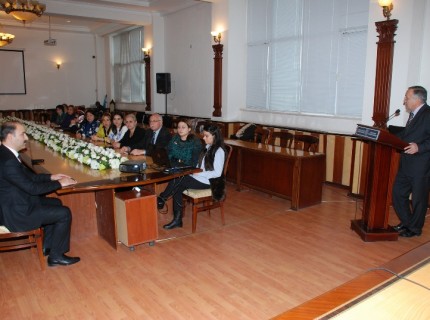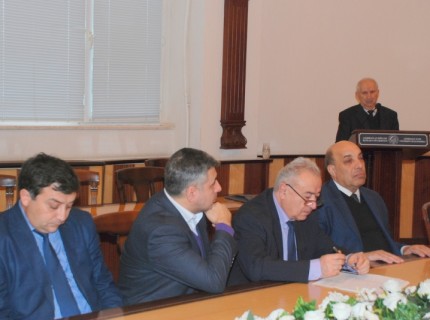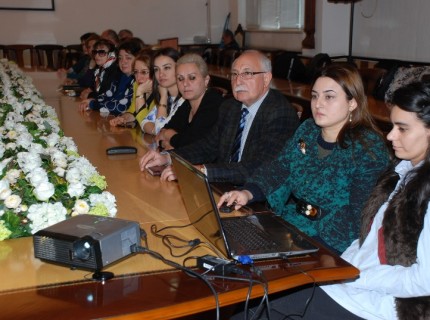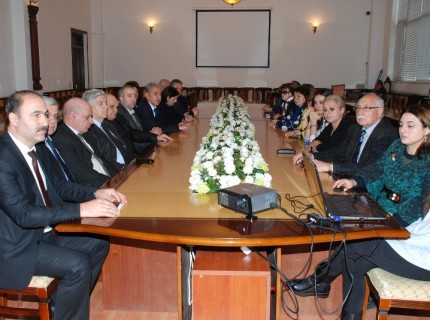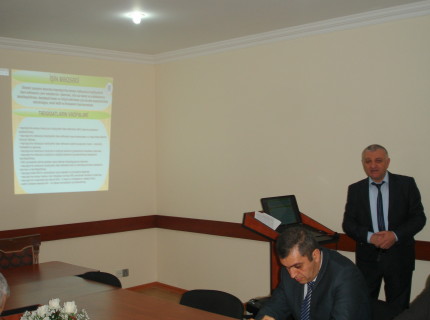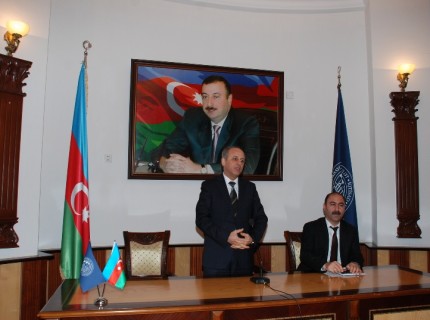First Model Class have been conducted at UNEC
Beginning from January 15 the new project has started at Azerbaijan State University of Economics (UNEC). Head of the Department “Economy and Organization of Labor”, Professor Tofig Guliyev, Head of the Department “Standardization and Certification”, Professor Zabit Aslanov and the Professor of the Department “Azerbaijan History” Nizami Suleymanov have conducted exemplary on the first day of the project.
In his report on “Modern Problems of Management of Human Capital” Tofig Guliyev has drawn attention to the urgent issues. Speaking on the analysis of the concept “Human capital” T.Guliyev noted that a wide spectrum research should be conducted to solve the problem. Ways to minimize the impact of modern problems encountered on the future generations. Professor also said that the geographical area is considered to be the main factor in the management of human resources. Information on the details of the link between the regional labor division and socio- economic development has been delivered.
Professor Zabit Aslanov spoke on “Development Methods for the Quality Management of Mechanical Engineering based on Systematic Approach”. Z.Aslanov said that key trends and directions of the quality management of machine building product based on the analysis of the practice and management theory were determined. On the basis of the systematic approach the development methods, improving, the specifications of methodological issues and development of modern ideas were spoken about.
Professor Nizami Suleymanov’s lecture on “The Safavids of Azerbaijan in the VI Century” was remembered with some interesting moments. The speaker analyzed relations of the Safavids with other empires on the basis of historical facts. Speaking on the strategic importance of the wars N.Suleymanov also drew attention to the areas of diplomatic relations.
It should be noted UNEC Professors and Heads of the Departments will give model classes within a month under the project. The lessons will be attended by the academic staff, doctoral and research students, young teachers and employees of the university and the representatives of the other higher institutions, organizations and companies.


